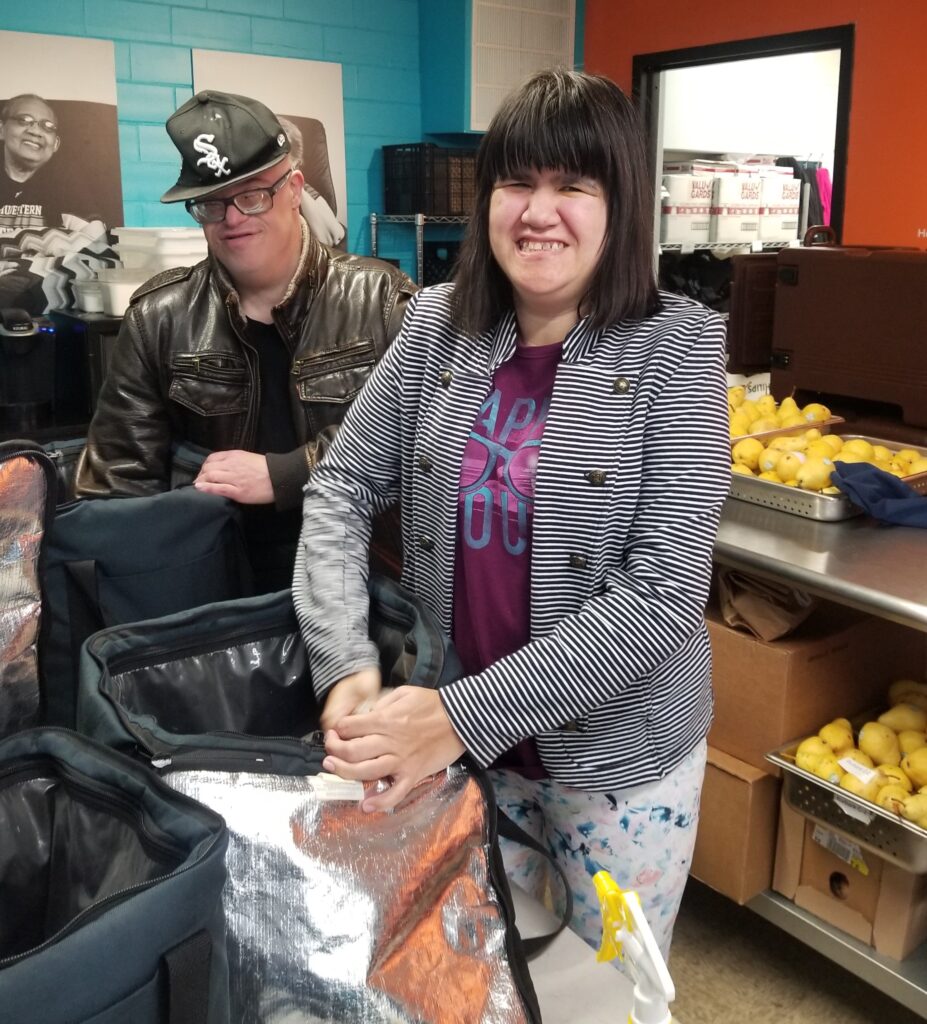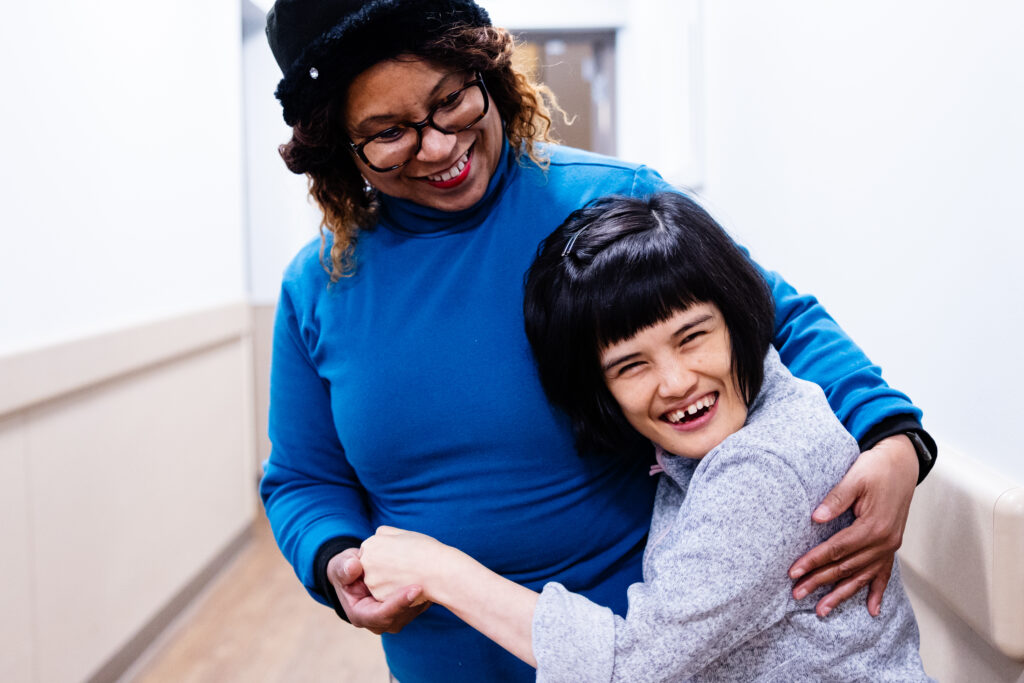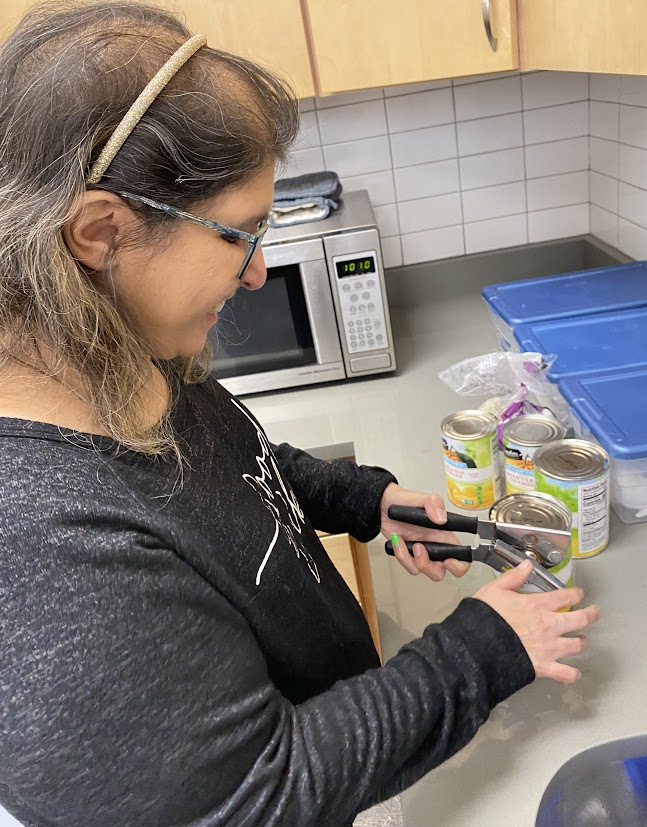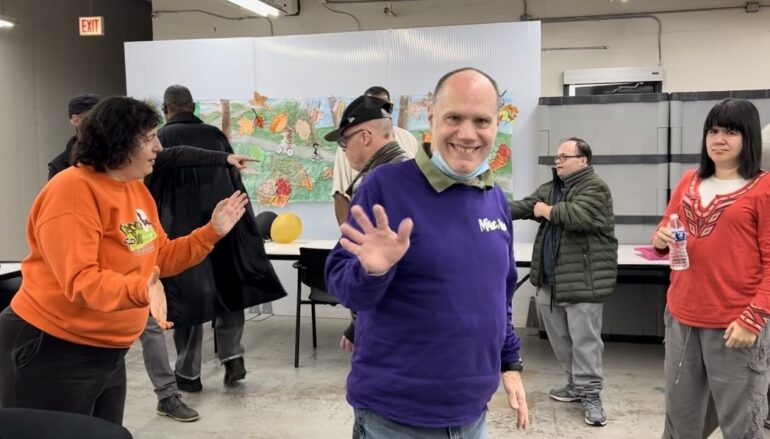Each July, we celebrate Disability Pride Month, commemorating the signing of the Americans with Disabilities Act (ADA) on July 26, 1990. The ADA has become the cornerstone legislation that prohibits discrimination against people with disabilities in employment, public housing, transportation, and other areas. It has been a crucial tool for holding ourselves accountable and creating a society that celebrates everyone.
This is a time to recognize and elevate the unique experiences, strengths, and contributions of the disability community and reflect on our progress, especially within our local communities. Local and state laws work alongside the ADA to create opportunities for people with disabilities to live full lives in the community, and organizations like Shore Community Services exist to implement programs and further the vision of inclusion and accessibility.

Shore was founded by tenacious parents – Lois and Thomas Lloyd – who refused to exclude their daughter from public life because of her disability. When existing services didn’t fit the Lloyds’ expectations for Patty and their family, they created their own in the basement of their Evanston home. For over seven decades, Shore Community Services has been a leading provider of vital services that help individuals with intellectual and other developmental disabilities (I/DD) access and participate in community resources, including social and therapeutic support, employment training and placement, and inclusive living. I am honored to lead an organization that not only has a deep history and roots in the community but continues to develop new approaches and adapt to meet the challenges of living with disabilities.
At Shore, we believe that everyone deserves to be cherished. Our programs focus on inclusion and building meaningful opportunities for individuals with developmental disabilities to participate fully in society, including living and working in the community with as few or as many supports as needed. All our programs are designed to promote individual choice, independence, and dignity for each person we serve, nearly 400 people each year.

We still have a long way to go as a country and a state. According to “The Case for Inclusion” report, published every year by United Cerebral Palsy (UCP), Illinois consistently ranks among the lowest states in serving those with intellectual and developmental disabilities (I/DD). All 50 states and the District of Columbia are ranked in five key areas critical to the inclusion, support, and empowerment of individuals with I/DD and their families: Promoting Independence, Promoting Productivity, Keeping Families Together, Serving Those in Need, and Tracking Health, Safety, & Quality of Life.
While the ADA provides protections, people with I/DD are too often separated and segregated from daily life due to discriminatory practices or a simple lack of planning for accommodations by decision-makers. We need better avenues for people with disabilities, particularly I/DD, to have a seat at the table and a voice in the discussion.
We can and must do better. A recent report from the Centers for Disease Control (CDC) shows that 1 in 10 children are diagnosed with a developmental disability, and the rate is rising. Chances are that most of us know someone with a developmental disability or who is caring for a child with I/DD. Finding local community resources and support is crucial while continuing to increase awareness and build toward the potential that the ADA promised.

On the local level, organizations like Shore will continue to adapt and evolve our services as individuals’ needs change. Partnerships between community organizations, faith communities, housing providers, and government entities are critical to continuing support of our neighbors with I/DD. This means creating more meaningful jobs at fair wages, affordable housing opportunities, and an array of supportive services that keep the unique needs of people with I/DD in mind, including behavioral health, sexual health, and other clinical services. Communities also need to step up to hire people with disabilities, welcome them as neighbors, and provide critical volunteer and private funding support.
This Disability Pride Month, I invite you to learn more about the Disability Rights movement and renew your commitment to advocating for the rights and recognition of individuals with disabilities.
This post was submitted as part of our “You Said It” program.” Your voice, ideas, and engagement are important to help us accomplish our mission. We encourage you to share your ideas and efforts to make the world a better place by submitting a “You Said It.”
How To Help
Since government funding does not cover the total cost of services and programs, Shore must maintain a robust and private funding base made up of individuals, foundations, corporations, and community partners to continue delivering high-quality support for the nearly 400 children and adults with intellectual and other developmental disabilities that we serve. Every dollar donated is much needed and greatly appreciated.


